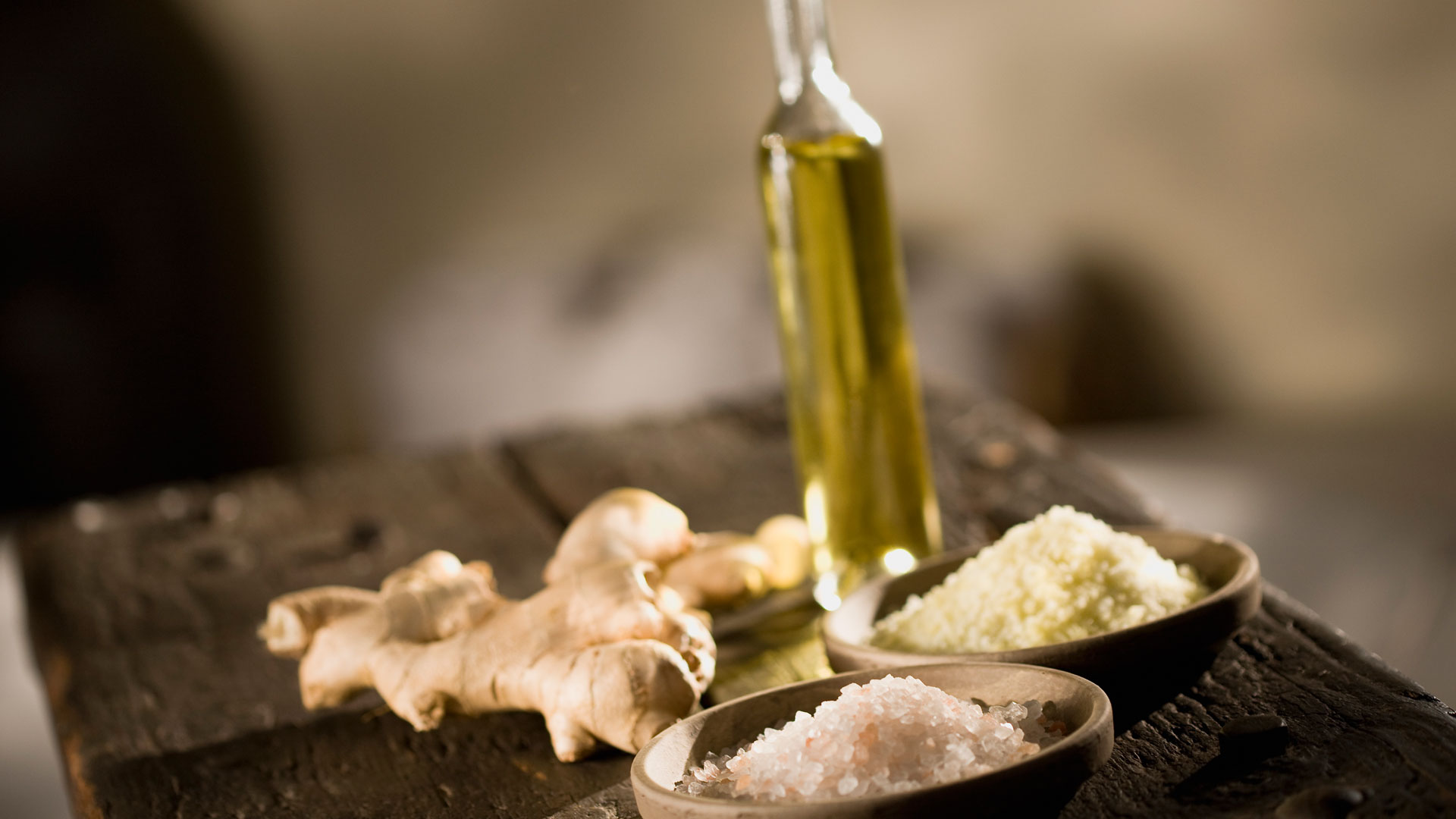Ginger oil for weight loss: does it work and is it safe?
Does ginger oil for weight loss work? We spoke to experts to find out


Start your week with achievable workout ideas, health tips and wellbeing advice in your inbox.
You are now subscribed
Your newsletter sign-up was successful
You may have seen social media posts touting the benefits of ginger oil for weight loss and wondered, does it really work? We spoke to an aromatherapist and a nutritionist to find out the science behind ginger, whether it can help you lose weight and if there are any risks of using ginger oil.
Adding ginger to your diet may positively impact your health and wellbeing but sustainable weight loss comes from making changes to your diet and lifestyle. Check out our round-up of the best exercise machines to lose weight to help you on your journey.
Does ginger oil make you lose weight?
No scientific research suggests that ginger oil can aid weight loss. Some of the potential benefits of ginger essential oil are anecdotal, meaning they're based on personal reports or testimony as opposed to scientific studies. However, aromatherapist Jules Kelly says, "It is undeniable that ginger is beneficial to the body. Pure ginger essential oil is made up of a chemical group called sesquiterpenes which are important contributors to the functionality of essential oils."
"The main health effects of sesquiterpenes are that they are cleansing, aid digestive health and healthy circulation, improve the appearance of the skin, and promote emotional grounding. As part of a healthy lifestyle, incorporating ginger into your routine will assist in supporting the body but are by no means a quick fix. If you think you can cancel out a bad diet with ginger tea, you are mistaken! Adding essential oils to your routine will help your body however you need to look at your lifestyle holistically."
Nutritionist Hannah Hope says ginger alone cannot make you lose weight. Still, there are many other benefits, "Ginger has been studied many times in the scientific community for its health benefits as it's been used in herbal medicine for centuries. Along with its use for pain reduction, nausea, and anti-inflammatory benefits, it's also been used in cancer therapies for vomiting. However, it does also have a role in weight loss. A 2019 review of randomized control trials (RTCs) demonstrated that in 14 RCT's supplementing with ginger significantly decreased body weight, waist to hip ratio, and insulin resistance index whilst also increasing the 'good' HDL cholesterol. Still, it had no effect on BMI or total cholesterol reduction."
"The action of weight loss with ginger is discussed in a 2018 study for its thermogenic (the production of energy to digest and absorb food) effect and increasing the breakdown of fat (lipolysis), suppressing lipogenesis (creation of fat), and by controlling the appetite. The anti-inflammatory effects of ginger can also mitigate some of the side effects of obesity."

How to use ginger oil for weight loss
According to the Food and Drug Administration (FDA), ginger oil is "generally recognized as safe," and few adverse effects have been reported. However, as with any essential oil, ginger oil is highly concentrated and shouldn't be applied to the skin undiluted. If you're concerned about a potential skin reaction, you should perform a patch test using a small amount of diluted ginger oil on your skin.
Start your week with achievable workout ideas, health tips and wellbeing advice in your inbox.
Jules Kelly says, "Ginger oil can be used aromatically, topically, and internally. You should only use ginger oil internally if you are fully satisfied your oil is pure and not adulterated or contaminated in any way."
Hannah Hope says if you wish to add ginger to your diet, "You can take it as a tea to increase liquid intake, keeping you feeling fuller or double the effects of thermogenesis by taking it with green tea, which is also thermogenic. In a 2017 study of 50 overweight women, half were given supplements of 125mg green tea, 25mg capsaicin, and 50mg ginger extract with lunch and dinner for eight weeks, and one group was given a placebo. The group taking the supplements had a significant decrease in weight and BMI compared to the placebo group.
"You can also have ginger as a juice or a powder. The powder has a higher number of anti-inflammatory compounds, and you can also add this to food or a liquid. A small study in 2012 gave 10 men 2g of ginger powder in hot water after breakfast and this resulted in enhanced thermogenesis and reduced hunger, suggesting a potential role of ginger in weight management. There have been little to no scientific studies on ginger oil and weight loss so it would be hard to comment on its effectiveness in this form”, Hope said.

Are there any risks to taking ginger oil for weight loss?
Kelly says, "It is everyone's own responsibility to ensure that they use essential oils appropriately. They are powerful plant medicines. Check on the dilution ratios for whatever you are using it for. Aromatically there should be no counter-indications, however, it is always best to check. "
Hope says that if you are adding ginger to your diet, "You may experience some gastric side effects using ginger, such as indigestion, gas, or constipation. There are also indications of ginger increasing bile flow so be careful if you have gallbladder disease. High amounts can cause mild heartburn or irritation, but this can be mitigated by taking it with food."
Looking for other ways to change up your diet? We’ve found all the best protein powders for weight loss.
Catherine is a freelance journalist writing across titles such as Verywell Health, Healthline, The Daily Telegraph, Refinery29, Elle, and Vogue. She specializes in content covering health, fitness, wellness, and culture.
A once reluctant runner, Catherine has competed in 30 running events in the past five years and looks forward to one day running the London Marathon.
